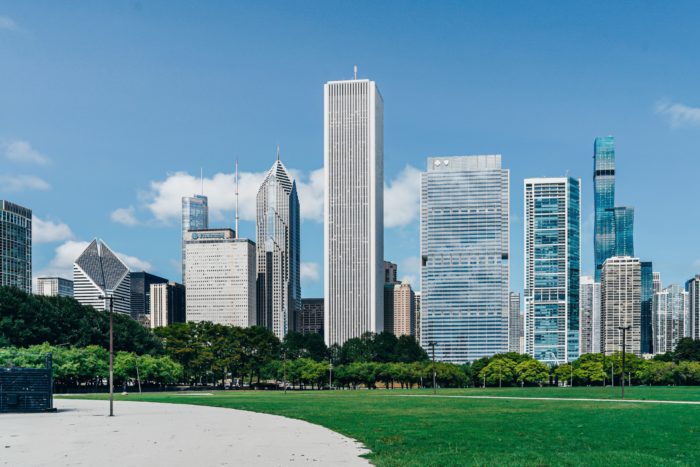The Chicago City Council today passed the City’s 2021 pandemic budget, a financial roadmap that was balanced through a combination of savings and efficiencies, new revenues, and debt refinancing while also increasing critical community investments in priority areas such as violence prevention and mental health resources. The $12.8 billion budget was built in close collaboration with City Council members, labor partners, and other key stakeholders and avoids hundreds of layoffs despite a historic $1.2 billion deficit. Importantly, this budget includes structural reforms that strengthen the City’s long-term financial sustainability while also holding firm to the City’s shared values of equity, inclusion, and transparency.
“Budgets are more than just math problems, they are statements on our values as a city and a community of nearly three million people to develop solutions for our families and businesses in the face of unprecedented fiscal challenges,” said Mayor Lightfoot. “Rather than abandon our values, we chose to lean into them, even more, to meet this historic moment and seize our once-in-a-generation opportunity to move our city forward. As we look ahead to the new year, our success will continue to be rooted in those same values that have guided us throughout our incredible journey to transform our city and will continue to light our way in the months and years ahead.”
Building on one of the City’s core values – transparency – the 2021 budget process launched with a robust community engagement in order to provide an overview of the City’s budgetary challenges. With more than 65 percent of the historic $1.2 billion gap comprising revenue loss due to the impacts of COVID-19, the City relied on data-informed analysis, public City Council hearings, feedback gathered from discussions that involved more than 100,000 people, and various other engagement tools to develop the framework for closing the budget gap.
Given the magnitude of the deficit, the City looked internally first and asked departments to reimagine how services could be delivered with fewer resources. Through a series of belt-tightening measures and fiscal planning strategies, the Fiscal Year (FY) 2021 budget includes more than $500 million in structural solutions, which represents more than $250 million in both personnel and non-personnel savings and efficiencies and an additional $262 million in improved financial management. Importantly, these structural solutions build on those made in the 2020 budget and continue to lead the City on the path toward structural balance.
Since a significant portion of the 2021 budget gap is comprised of COVID-related revenue losses which are one-time in nature, this budget includes the issuance of general obligation and sales tax securitization corporation bonds for savings to help replace those one-time losses. The financial transaction, which is expected to achieve $501 million in budgetary savings for 2021, will take advantage of current favorable market conditions to refinance existing debt, which has a higher interest rate, with debt that has a lower interest rate in order to offset the cost of the debt structuring for budgetary savings.
This budget also incorporates a variety of revenues that do not overly burden any single business sector or resident, including a one-time draw from the Rainy Day Fund, $76 million in TIF surplus funding, an adjustment to the Vehicle Fuel and Personal Property Lease Tax, and a $93.9 million property tax levy which represents an estimated impact of approximately $56 annually on a median home valued at $250,000.
Even during the largest budget deficit in Chicago’s history and a global pandemic hampering our economy, this year’s budget reflects the needs and priorities of the public and represents the continued investments needed to strengthen the future of Chicago’s residents, businesses, and communities. Building on investments made last year, the FY 2021 budget investments include $11 million for returning residents and workforce development, $65 million in affordable housing and homeless prevention, $36 million toward community-based violence prevention, and $20 million for mental health which includes $1 million to support an alternative responder pilot, that pairs police officers with mental health professionals to respond to relevant 911 calls as well as a solo-responder model pilot that doesn’t involve law enforcement at all.
Additionally, this budget invests in Chicago’s future by funding the construction of infrastructure and City facilities in all 77 communities. Included in this budget is the approval to begin a multi-year Capital Plan that will put thousands of residents back to work by addressing the City’s decades-long backlog of infrastructure needs including the repair and replacement of bridges, shoreline revetment, Americans with Disabilities Act (ADA) accessible sidewalks, street resurfacing, streetlights and traffic signals among other critical projects.
These investments underscore Mayor Lightfoot’s commitment to addressing areas of historical disinvestment across Chicago’s neighborhoods through an equity-focused approach and reinforces the City’s ongoing mission to expand opportunity and success for every Chicago resident.
